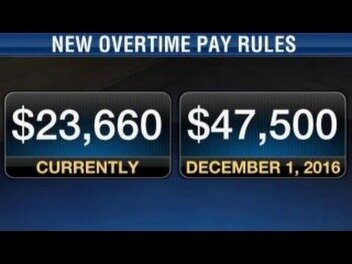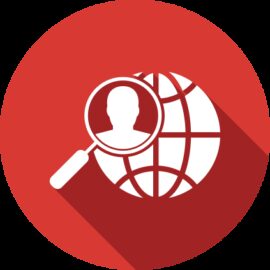
The IRS offers immediate, short-term, and long-term online payment plans. An immediate payment plan is just another term for “pay in full.” Short-term payment plans must be paid off within 180 days of the start date. Long-term payment plans are more open-ended, with monthly payments on an agreed-upon schedule.
Online programs may also provide a flexible or accelerated format. You might like to consider the Online Master’s of Accounting (iMSA), offered by the University of Illinois Urbana-Champaign. Candidates have four hours to complete each section, with a total exam time of 16 hours. Each section is taken individually, and candidates can choose the order in which they take them.
Once you have obtained your CPA license to practice, you will need to take continuing professional education courses annually to retain your license. CPAs are federally approved to represent you in all matters before the IRS. Those that specialize in tax preparation can also typically help you with tax and financial planning, accounting needs, and most other financial tasks that you might have.
Frequently Asked Questions
On larger balances, this could end up costing you more than setting up an installment plan. All other things being equal, a high ratio can adversely impact your score. If your aggregate credit limit (available credit) is on the low side, a large end-of-year or estimated tax payment could spike your credit utilization ratio.

All three vendors accept Visa, Mastercard, and American Express plus popular mobile wallet providers. In virtually every state that collects them, you can pay state income taxes with a credit card as well. Check this nifty cheat sheet from Mastercard for details about individual and business payment portals for state income taxes. In order to take the exam, most states first require that a student earns their bachelor’s degree.
The majority of these accept the AICPA self-study Professional Ethics for CPAs CPE course or another course in general professional ethics. Many states, however, require that the ethics course include a review of that state’s specific rules for professional practice. One important function performed by CPAs relates to assurance services. Many accountants choose to become CPAs because the designation is considered the gold standard in the accounting profession. In the United States, certification requirements for accountants can vary from state to state.
Brain Sensei Coupon: $50 Off CAPM Exam Prep Course
The compensation will vary greatly depending on things like location, company, seniority, and specific role. Review the state map on ThisWayToCPA.com and select your state for more information. Accountants can be held liable under two different types of law—common law and statutory law. Common law liability includes negligence, fraud, and breach of contract, while statutory law includes any state or federal securities laws. Although your accountant may have more than one designation, the most common are Certified Internal Auditor, Certified Management Accountant, and Certified Public Accountant. Julia Kagan is a financial/consumer journalist and former senior editor, personal finance, of Investopedia.

CPAs acquire a skill set that builds on accounting capabilities and enhances their potential as the most highly qualified and knowledgeable accountants. CPAs must possess abilities in accounting and business concepts, research, analytics, problem-solving, communication, project management, and ethical standards. To succeed in any corporate environment, accountants must have a variety of skills. After receiving a bachelor’s degree, they need to ensure that they are prepared to handle financial data management, advice and analysis, reporting compliance, and financial report preparation. Accountants are legally allowed to prepare tax returns, although they may not have as much knowledge of tax codes as a CPA does. Another important distinction is that CPAs can represent clients in front of the IRS in the event of a tax audit, and they can sign tax returns, whereas non-CPA accountants cannot.
CPA vs. accountant: What’s the difference?
Most young people who want to pursue traditionally-entrenched jobs like accounting and engineering think they have to go to school to acquire the skills and credentials to pursue those jobs. With accounting, being a personal accountant is pretty much impossible without a CPA, and most accounting jobs are either extensions of being a CPA or being a CPA is how you get to them. Your tax bill is big enough for the processing fee to offset a sign-up bonus.
State requirements for the CPA qualification can be summed up as the Three Es—education, examination and experience. The education requirement normally must be fulfilled as part of the eligibility criteria to sit for the Uniform CPA Exam. Some adenosine triphosphate states have a two-tier system whereby an individual would first become certified—usually by passing the Uniform CPA Exam. That individual would then later be eligible to be licensed once a certain amount of work experience is accomplished.
Code of ethics & requirements
As for experience, most states/jurisdictions require at least two years public accounting experience. Many states/jurisdictions also accept non-public accounting experience (e.g., industry, government), although the number of years deemed acceptable are typically higher than for public accounting. In addition, some states/jurisdictions have a one-tier system, whereby candidates must pass the CPA exam and fulfill the experience requirements to obtain both the certificate and license.
- These programs introduce you to financial accounting, auditing, and taxation topics at both the individual and corporate levels.
- This is an exam that is written and graded by the American Institute of Certified Public Accountants (AICPA).
- And freelancers and independent entrepreneurs responsible for quarterly estimated tax payments can pay those with plastic too.
You can check with your state’s board of accountancy to verify your eligibility. This content has been made available for informational purposes only. Learners are advised to conduct additional research to ensure that courses and other credentials pursued meet their personal, professional, and financial goals. If you’re looking to take your accounting career to the next level, a CPA designation may be what you need.
Public accounting also includes filing corporations’ records with the Securities and Exchange Commission (SEC) and potential investors. Upon passing the CPA Exam, you will receive your CPA certificate. There are other educational and professional work experience requirements for licensure that vary from state to state. Our certification section offers more details on these requirements. If you’re interested in professional help with your taxes, you might be wondering what types of specialists there are and which one you need. An enrolled agent and a certified public accountant are both tax experts, but when you should work with an EA vs CPA differs based on your needs.
Accounting advisory: What you need to know – Thomson Reuters Tax & Accounting
Accounting advisory: What you need to know.
Posted: Thu, 06 Jul 2023 21:56:15 GMT [source]
Some states will accept other experiences, such as working in government or industry, but you will generally need more years of such experience. You can also pursue management consulting, information technology, education, and financial planning careers. While these may not seem like typical professions for accountants, many industries rely on financial expertise.
CPA: Certified Public Accountant
After meeting state-specific educational and testing requirements, these professionals are certified by national professional associations. Public accountants work for individuals, businesses, or the government and may specialize in areas such as taxation, consulting, or auditing. Public accountants who meet certain qualifications can seek licensure to work as certified public accountants (CPAs). This page covers important information about CPA careers, including responsibilities and qualifications. Most states/jurisdictions require at least a bachelor’s degree to be eligible to become a CPA.
- As a CPA, it’s very rewarding to be able to make a direct and positive impact on a business client, especially with a not-for-profit that makes a real difference in our community.
- For suggestions, see our list of the best credit cards to pay your taxes.
- They are chief financial officers for Fortune 500 companies and advisors to small neighborhood businesses.
You may choose to specialize in a particular area, such as forensic services, taxes, or working within an industry like health care. Alternatively, depending on your career path, you can focus on a wide spectrum of accounting services. The CPA designation is specific to the country in which the exam is taken, though it is a well-known program that is offered in many countries around the world. International equivalency exams are also offered so that CPAs can work in countries other than the one in which they were certified.
